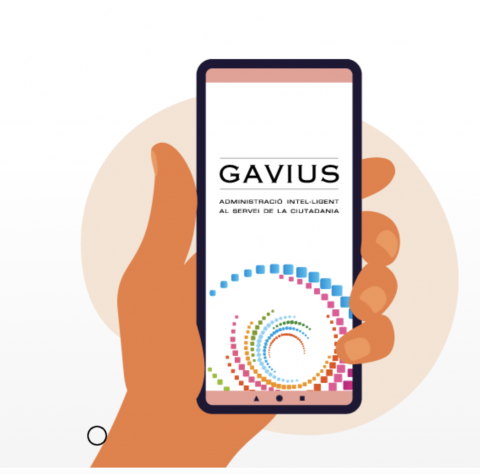Gavius Virtual Assistant - Gavà
Gavà (Spain)
Gavius is an innovative virtual assistant which uses Artificial Intelligence technology to communicate to the citizens the social aids that they have at their disposal, process them, grant them and perceive them in a comfortable, fast and simple way, via a mobile device.
The new virtual assistant will be applied in the field of social services, but has the possibility of being implemented in other uses that improve the relationship of the administration with the citizens.
Two more virtual assistants are also being developed: one for staff and the other for managers.
The service is part of a project financed by ERDF funds through the Urban Innovative Actions initiative. The Gavà City Council is the leader of the project, but has the help of other 7 partners. A public-private partnership that has been essential for Gavius to get ahead.
We are already in the last year and at 70% development. This year 2022 it is planned to carry out pilot tests, and after that we will only have the evaluation of the impact on social aids, the definition of standards and the cost-benefit analysis. The project will end on February 28, 2023.
- Digital interaction: Gavius will allow the identification of users, the application for social assistance and its processing through mobile devices.
- Accessibility, security, availability and usability: the project is being designed so that everyone can use the applications in an agile, comfortable and simple way, with clear menus, understandable texts, different languages and mechanisms to adapt it to people with some kind of disability.
- Reduction of administrative burden: social workers will have an assistant designed specifically for them. It will be an application similar to that for the citizens, which will mean faster processing and reduce the time spent on administrative tasks. In this way, they will be able to devote more time to citizen care.
- Digital provision of public services: Gavius responds to the will of the Gavà and Mataró councils to adapt to the digital transition. The application, processing and monitoring of automated municipal aids can be done from any mobile device.
- Citizen involvement: in Gavà and Mataró the participation of the citizens and the municipal entities has been counted on to design the functionalities and the aspect of the applications. An intense communication campaign will be launched in June 2022 to involve even more people. The first pilot test of the citizen application will take place in September.
- Incentives for the use of digital services: using Gàvius applications, it will be much easier for citizens to find out about the municipal social aids available to them, as well as to start processing and monitoring it. Municipal workers will reduce the time of administrative procedures, and managers will be able to make a much more detailed analysis of the needs of the population to manage budgets.
- Protection of personal data and privacy: this is one of the highlights of the project, as it makes innovative use of data. Gavius prioritises privacy and the minimisation of data and artificial intelligence techniques that do not use individual data and can recommend the necessary procedures to users. Thus, the system allows citizens to process and receive these aids in a comfortable, fast, simple and respectful way with their privacy through a mobile application. Potential beneficiaries will be identified through a completely private and secure system and will be able to apply for and manage the aids on the spot. In addition, with Gavius we will create an ethical monitoring of the use of algorithms, to avoid bias and discrimination.
• A CITIZEN APPLICATION: Virtual assistant with secure identification mechanisms (biometrics, blockchain...) to autonomously access simple but repetitive municipal services.
• A virtual assistant for MUNICIPAL WORKERS: They will be able to anticipate the needs of citizens and/or improve their relationship and interaction, adapting to their needs by optimally personalizing the services provided and improving the citizen's experience in relation to the management.
• A virtual assistant for municipal MANAGERS AND POLITICIANS: To help them efficiently allocate resources to social services and make decisions based on data.
Initially the co-creation sessions were designed following an innovative methodology, the LEGO Serious Play. The arrival of the Covid-19 pandemic and the confinement prevented these sessions, which required attendance.
Given the circumstances that prevented the face-to-face sessions were scheduled from remotely, with all the effort that supposed by both the technical team and for citizen participation. In these sessions were very important to get key words and concepts to identify needs, concerns and user demands. The technical tools found were, of an on the other hand, the use of an application that allows video conferencing and sharing meetings of screens and documents. On the other, one mural or digital whiteboard to share ideas and work collaboratively. Both are easy-to-use tools that any user or use, regardless of their technological experience.
There were five virtual sessions with citizens, representatives of entities and municipal social workers. They laid the groundwork for the development of the first prototypes.
